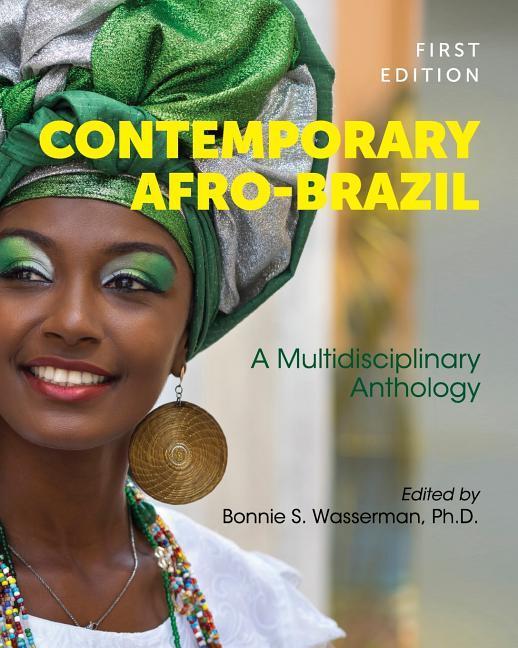
Zustellung: Di, 12.11. - Fr, 15.11.
Versand in 6 Tagen
VersandkostenfreiBestellen & in Filiale abholen:
Contemporary Afro-Brazil: A Multidisciplinary Anthology exposes students to all aspects of Afro-Brazilian culture, including sports, music and dance, ideas of gender, socioeconomic and political disparities, and more. The anthology includes primary and secondary sources that emphasize and demonstrate the African influence in Brazilian culture from the beginning of the Atlantic Slave Trade to today.
Over the course of 10 modules, students learn about the "discovery" of Brazil by the Portuguese, the establishment of the Atlantic Slave Trade, the existence (or not) of a racial democracy in Brazil, and how African traditions are often interwoven with Catholicism to create a unique religious practice and tradition. Additional readings explore the African influence on Brazilian dance, music, and film, the development and policing of favelas, and gender inequality in the nation. The collection closes with sections dedicated to the Afro-Brazilian influence on soccer and modern-day politics, protest, and policy, as Afro-Brazilians struggle to overcome socioeconomic, racial, and political disparities.
Contemporary Afro-Brazil is a cross-disciplinary anthology designed to serve as a supplementary text for foundational courses in anthropology, history, political science, sociology, music, dance, religion, and gender studies that focus on Latin America and Brazil.
Bonnie S. Wasserman, Ph.D., earned her doctorate in Portuguese with a minor in African languages and literature from the University of Wisconsin-Madison, her M.A. in political science from the University of California, Berkeley, and her B.A. in Portuguese and Ibero-American studies from University of Wisconsin-Madison. She is an assistant professor of Africana studies at the University of Arizona. She is a two-time Fulbright scholar (Portugal, 1994-1995; Barbados, 2011). Her specific areas of academic expertise include Lusophone film and literature, African diaspora, Sephardic studies, and Latinx culture, to name a few.
Over the course of 10 modules, students learn about the "discovery" of Brazil by the Portuguese, the establishment of the Atlantic Slave Trade, the existence (or not) of a racial democracy in Brazil, and how African traditions are often interwoven with Catholicism to create a unique religious practice and tradition. Additional readings explore the African influence on Brazilian dance, music, and film, the development and policing of favelas, and gender inequality in the nation. The collection closes with sections dedicated to the Afro-Brazilian influence on soccer and modern-day politics, protest, and policy, as Afro-Brazilians struggle to overcome socioeconomic, racial, and political disparities.
Contemporary Afro-Brazil is a cross-disciplinary anthology designed to serve as a supplementary text for foundational courses in anthropology, history, political science, sociology, music, dance, religion, and gender studies that focus on Latin America and Brazil.
Bonnie S. Wasserman, Ph.D., earned her doctorate in Portuguese with a minor in African languages and literature from the University of Wisconsin-Madison, her M.A. in political science from the University of California, Berkeley, and her B.A. in Portuguese and Ibero-American studies from University of Wisconsin-Madison. She is an assistant professor of Africana studies at the University of Arizona. She is a two-time Fulbright scholar (Portugal, 1994-1995; Barbados, 2011). Her specific areas of academic expertise include Lusophone film and literature, African diaspora, Sephardic studies, and Latinx culture, to name a few.
Produktdetails
Erscheinungsdatum
01. August 2018
Sprache
englisch
Seitenanzahl
406
Herausgegeben von
Bonnie S. Wasserman
Verlag/Hersteller
Produktart
kartoniert
Gewicht
867 g
Größe (L/B/H)
254/203/22 mm
Sonstiges
Paperback
ISBN
9781516525904
Entdecken Sie mehr
Bewertungen
0 Bewertungen
Es wurden noch keine Bewertungen abgegeben. Schreiben Sie die erste Bewertung zu "Contemporary Afro-Brazil" und helfen Sie damit anderen bei der Kaufentscheidung.









